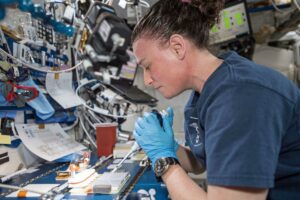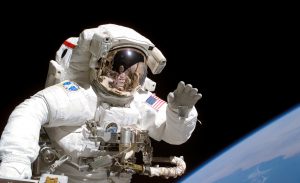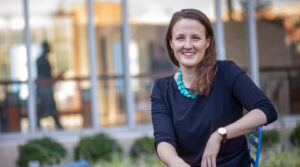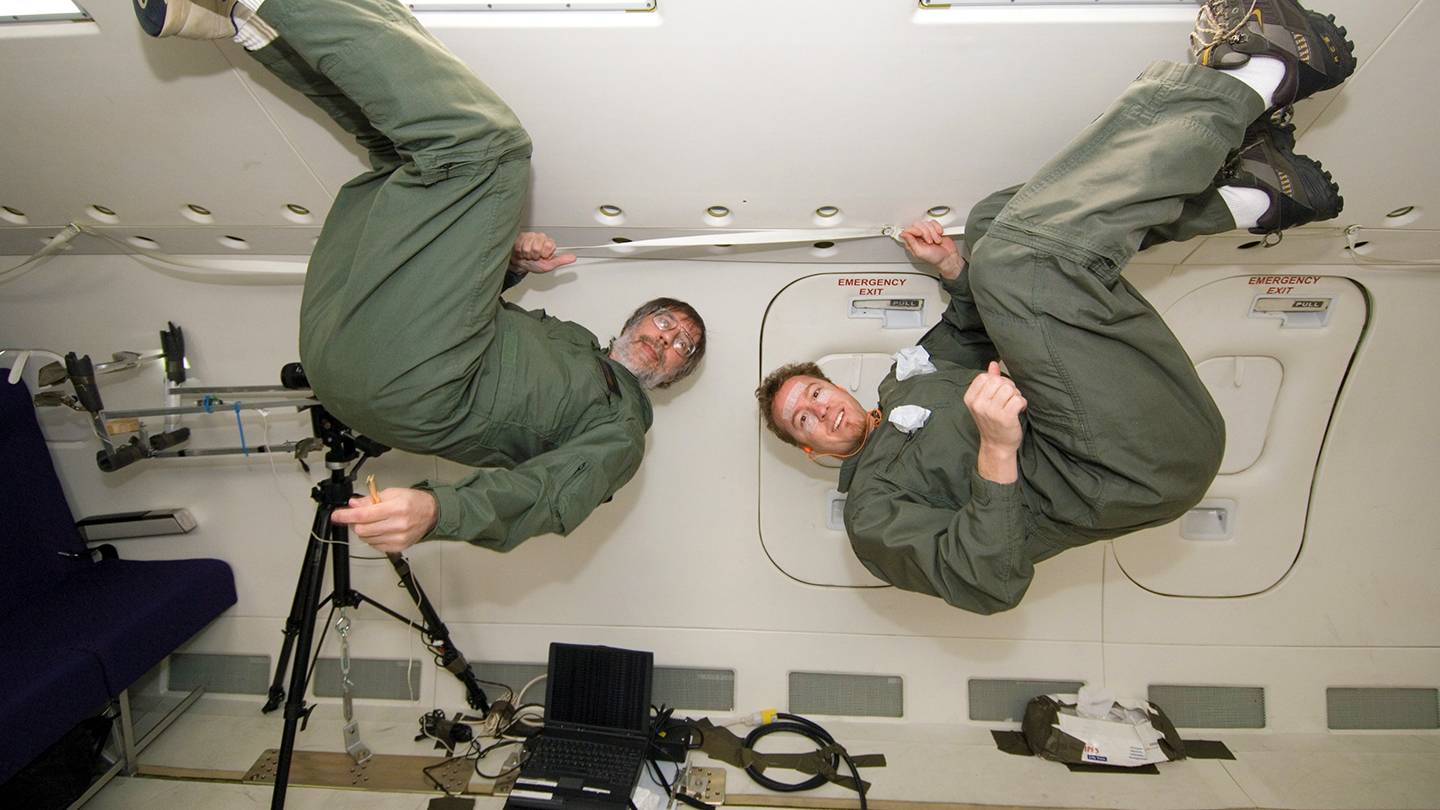bioastronautics@hopkins
Mini-Symposium Series
In November 2021, bioastronautics@hopkins began holding a series of virtual mini-symposia, involving various topics related to human spaceflight. These events are hosted by the Johns Hopkins University Whiting School of Engineering Office of Research and Translation, as well as Hopkins@Home. bioastronautics@hopkins is led by Dr. Mark Shelhamer, Professor of Otolaryngology at the School of Medicine.
Upcoming: Genomics in Space
June 11, 2024 | 11 a.m. ET| Virtual
Register
In the near future, government spaceflights will become more ambitious, with the NASA Artemis program sending people back to the moon (and later missions going on to Mars). At the same time, commercial spaceflight providers (SpaceX, Axiom, Blue Origin) are sending people into space who might not have the same levels of health and fitness as government astronauts. Both of these circumstances will challenge the ability of humans to tolerate spaceflight and perform inflight tasks in an extreme environment. Among the approaches to address this issue is genomic analysis: assessing a given person’s genetic predisposition to tolerate the stressors of spaceflight, measuring changes in genetic (epigenetic) makeup as a consequence of spaceflight, and developing countermeasures to the effects of spaceflight based on these individualized and personalized responses. The speakers in this symposium are experts in this field and are at the forefront of research into spaceflight effects on the genome.
Michael Schmidt
Dr. Michael A. Schmidt is among those leading the advancement of precision medicine in human spaceflight. His clinical and research work is focused on multi-omics analysis, including the NASA Twins Study of One Year in Space, Inspiration4, Polaris Dawn, Axiom-1, Axiom-2, Axiom-3, and other civilian missions. His work in functional genomics and functionally characterized molecular networks has been central to his team’s development of the Astronaut Digital Twin (ADT) platform for human spaceflight. Dr. Schmidt’s clinical work in genomics stresses the need to understand gene signatures within the broader context of molecular networks, including transcripts, proteins, metabolites, and others. He has also developed a working pharmacogenomics methodology to personalize drug prescribing for astronauts.
Dr. Schmidt is the CEO and Chief Scientific Officer of Sovaris Aerospace.
Dr. Schmidt is the former President of the Life Sciences and Biomedical Engineering Branch of the Aerospace Medical Association (currently on the Board of Governors) and is a founding member of the Precision Medicine & Pharmacometabolomics Task Group of the Metabolomics Society. Dr. Schmidt did his Ph.D. research in Molecular Medicine & Biochemistry at NASA Ames Research Center and did a second Ph.D. in Neuroscience at Lancaster University (UK), with additional studies in data and models at MIT.
 Christopher Mason
Christopher Mason
Christopher Mason, PhD, is a Professor of Genomics, Physiology, Biophysics, and Neuroscience at Weill Cornell Medicine and Director of the WorldQuant Initiative for Quantitative Prediction. He completed a dual B.S. in Genetics & Biochemistry at University of Wisconsin-Madison (2001), a Ph.D. in Genetics at Yale University (2006), Clinical Genetics Fellowship at Yale Medical School (2009), and was the Visiting Fellow of Genomics, Ethics, and Law at Yale Law School (2006-2009). His laboratory creates and deploys new technologies and algorithms for medicine, integrative omics, and cell/genome engineering, spanning more than 350 peer-reviewed papers, five patents, five diagnostics tests, ten biotechnology companies, and four non-profits. Dr. Mason also holds affiliate faculty appointments at the New York Genome Center, Yale Law School, and the Consortium for Space Genetics at Harvard Medical School. He is the author of The Next 500 Years: Engineering Life to Reach New Worlds and The Age of Prediction.

Christopher Bradburne
Chris Bradburne, PhD, is a biologist who leads the sequencing and computational biology section in the Johns Hopkins University Applied Physics Laboratory’s (APL) Asymmetric Operations Sector. He has led groundbreaking, large-scale Department of Defense precision medicine and environmental health efforts, including projects in viral genome sequencing standards, genomic disease surveillance, microbiome bioinformatics, and sequencing-based hospital infection control. He was the research pillar lead for the U.S. Air Force’s first precision medicine program, and he has also worked to establish wet lab and bioinformatics approaches employing sequencing for diagnostics in far-forward, low-resource areas. Additionally, he is an adjunct Associate Professor of Genetic Medicine in Johns Hopkins University’s Department of Genetic Medicine, and teaches courses in Systems Biology, Bioinformatics and Computational Biology in the Whiting School of Engineering and the Biomedical Engineering Department. He has had a long interest in automated space-based biological detection, including co-leading NASA-funded efforts to engineer life-detection instrument suites for astrobiology-focused missions with APL’s Space Exploration Sector.
Archive
Space for All: Opening Spaceflight to People with Disabilities – September 26, 2023
Radiation in Space – May 12, 2023
Space Surgery – October 25, 2022
Statistical Approaches to Spaceflight Data – March 16, 2022
Systems Medicine for Spaceflight – November 15, 2021
For audience questions and panel member responses, please click here.
Virtual Symposium on Human Spaceflight:
Kickoff of bioastronautics@hopkins – February 24, 2021
Virtual Symposium on Human Spaceflight

Bioastronautics@hopkins held a Virtual Symposium on Human Spaceflight, on Feb. 24, 2021.This was the first event for the special interest group led by Mark Shelhamer, JHU Professor of Otolaryngology and former Chief Scientist of the NASA Human Research Program.Keynote speakers included physician and NASA astronaut Serena Auñón-Chancellor, and N. Wayne Hale, Director of Human Spaceflight at Special Aerospace Services and the former Space Shuttle Program Manager at NASA. The symposium included researchers in the field from universities and institutions across the country. Below are some of the recorded presentations from the symposium.
Host: Mark Shelhamer, Johns Hopkins University School of Medicine
Moderators: Mallika Sarma and Serena Tang, Johns Hopkins University School of Medicine
Assistance was provided by JHU WSE’s Commercial and Government Program Office (Larry Nagahara, Peter Zeender, Linda McLean, Bruce Dennett, William Bagley)
Bioastronautics Kickoff Event Schedule ![]()
Video Presentations
(No video)
(No video)
(No video)
(No video)
(No video)
(No video)
Human Spaceflight Special Interest Group

Johns Hopkins University is a major force in the area of spaceflight, with an emphasis on human health and performance, but connecting to all associated disciplines. The Human Spaceflight Special Interest Group will provide a unifying structure for activities in this field across the university by identifying and distributing funding and research opportunities, assisting with proposals, promoting cross disciplinary and integrated research, and assisting in student recruiting.
For information about the Human Spaceflight Special Interest Group, please contact:
Mark Shelhamer
Johns Hopkins University School of Medicine
(410) 614-5898
mshelhamer@jhu.edu
Funding Opportunities
-
- DEADLINE EXTENDED TO JULY 16: Interstellar Research Group Announces Scholarship Program for Rising College Undergraduates and Graduate Students. – IRG Scholarship
Job Opportunities
The Sky is No Longer the Limit

Photo by Chris Hartlove. Story by Steve St. Angelo
It took a few extra trips around the sun, but Dorothy Coker has found her space in nursing.
Among a galaxy of reasons to choose among the five-star programs at the Johns Hopkins School of Nursing, Dorothy Coker saw one tiny black hole: There was no program designed for students interested in space nursing—preparing to handle the health and safety issues that will undoubtedly arise or increase with wildly accelerating near- and deep-space travel.
5-4-3-2-1 …
Coker arrived for the MSN (Entry into Nursing) program on a mission. “I immediately went looking for faculty to partner with on building a new program,” she says. “I initially met Dr. [Vinciya] Pandian interviewing for the Research Honors Program, and she has been so receptive and supportive of the idea. I was also really lucky to find support and mentorship in Dr. [Mark] Shelhamer, who runs the Human Spaceflight Lab over at the School of Medicine.”
To read the full article in the Johns Hopkins Nursing magazine, click here.
JHU Professor to Create Center for Space Life Sciences

Johns Hopkins Associate Professor Mark Shelhamer, left, is working to create a Center for Space Life Sciences at Johns Hopkins University. Shelhamer has spent much of his career studying the human body’s adaptations to space. Now he is trying to help NASA (and commercial entities) safely send humans into space and to Mars while mitigating some of the major risks to human health and performance.
To read the full article in the Johns Hopkins Magazine, click here.
